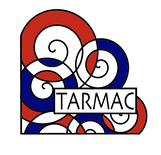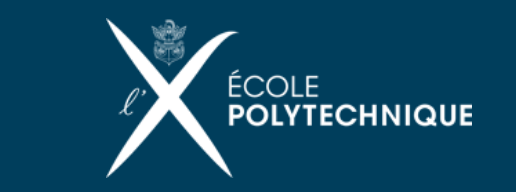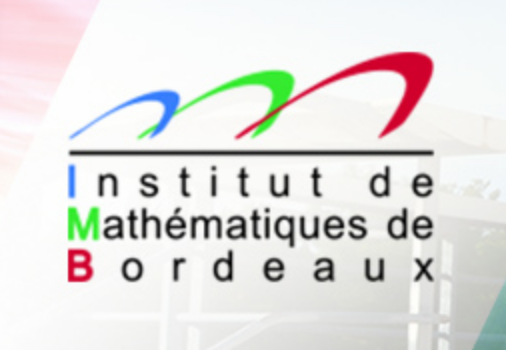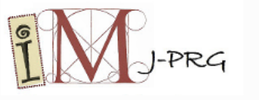|
Scientific Committee
Comité scientifique Maria Axenovich (Karlsruhe Institute of Technology) |
Organizing Committee
Comité d’organisation Éric Balandraud (Université de Bordeaux) |
|
The conference Additive Combinatorics in Marseille 2020 [Combinatoire Additive à Marseille 2020 (CAM2020)] is a gathering of the international and French Additive Combinatorics community. It continues a tradition of conferences on Additive Combinatorics held in France every few years for about a decade: Paris (2012), Marseille (2015), Bordeaux (2016).
Additive Combinatorics is a field in rapid development. Besides presenting recent advances in Additive Combinatorics the program of the conference will highlight its various applications and interactions with other fields such as graph theory, algebra, dynamical systems, coding theory and other parts of combinatorics and number theory. In about forty talks the field with its various ramifications will be presented. The scientific program will be completed with cultural activities promoting exchange among the participants in a more informal setting and will allow to celebrate Alain Plagne and his contributions to the field. An effort will be made to keep the meeting open for early-career researchers as well as mathematicians in neighboring fields who are interested in the subject. |
Le colloque Combinatoire Additive à Marseille 2020 (CAM 2020) vise à réunir la communauté de Combinatoire Additive internationale et française. Il s’inscrit dans une tradition de colloques en Combinatoire Additive organisés en France depuis environ une dizaine d’années : Paris (2012), Marseille (2015), Bordeaux (2016).
La Combinatoire Additive est un sujet en plein essor. Outre la présentation des dernières avancées en la matière, le programme du colloque mettra en évidence des applications et des interactions avec d’autres domaines tels que la théorie des graphes, l’algèbre, les systèmes dynamiques, la théorie des codes et différents aspects de la combinatoire et de la théorie des nombres. Tous ces aspects seront représentés au travers d’une quarantaine d’exposés. Le programme scientifique sera complété par des activités culturelles qui favoriseront les échanges informels entre les participants et inviteront à célébrer Alain Plagne et ses contributions au domaine. On s’attachera à favoriser la participation de jeunes chercheuses et chercheurs aussi bien que de mathématiciennes et mathématiciens qui travaillent dans des domaines connexes et s’intéressent au sujet. |
Paul Baginski (Fairfield University) Nonunique factorization of abundant numbers
Gautami Bhowmik (Université Lille 1) Bounds on Siegel Zeros
Pierre-Yves Bienvenu (Université Lyon 1) Additive bases in infinite abelian groups I
Jörg Brüdern (University of Göttingen) Expander estimates for cubes
Pablo Candela (Autonomous University of Madrid) Recent results on the 3k − 4 conjecture in Z/pZ, with applications
David Conlon (California Institute of Technology) The regularity method for graphs with few 4-cycles
Jean-Marc Deshouillers (Université de Bordeaux) On the local distribution of the product of two shifted primes and application
Christian Elsholtz (Graz University of Technology) Large sets in znm without progressions
Jacob Fox (Stanford University) Subset Sums, completeness and colorings
Pedro García-Sánchez (University of Granada) Stratified set of atoms
Alfred Geroldinger (University of Graz) Zero-sum sequences over abelian groups and their systems of sets of lengths
Norbert Hegyvári (Eötvös University – Budapest & Rényi Institute) Some results on ∆-degenerate Hilbert cubes
Harald Helfgott (CNRS University of Göttingen) Expansion in a prime divisibility graph
Hoang Thai Le (The University of Mississippi) Additive bases in infinite abelian semigroups, II
Gabriel Lipnik (Graz University of Technology) Constructions of large caps
Patrizia Longobardi (University of Salerno) Small doubling in k-engel groups
Kaisa Matomäki (University of Turku) Higher order uniformity of the liouville function in short intervals
Amanda Montejano (National Autonomous University of Mexico) Zero-sum squares in bounded discrepancy {−1, 1}-matrices
Marc Munsch (Graz University of Technology) Pair correlation of real sequences: metric results and a modified additive energy
Melvyn Nathanson (The City University of New York) Chromatic Sumsets
Péter Pál Pach (Budapest University of Technology and Economics) Sets avoiding k -ap’s in zn
Giorgis Petridis (University of Georgia) A question of Bukh on sums of dilates
Olivier Ramaré (CNRS Aix-Marseille Université) Some additive questions in multiplicative number theory
Misha Rudnev (University of Bristol). Higher Convexity and Iterated Sumsets
Alisa Sedunova (Saint Peterburg State University) Intersections of binary quadratic forms in primes and the paucity phenomenon
George Shakan (University of Oxford) An analytic approach to the Cardinality of Sumsets
Ilya Shkredov (Steklov Mathematical Institute) On products in additively rich sets
Sophie Stevens (Johann Radon Institute (RICAM)) An update on the sum-product problem
Aled Walker (University of Cambridge) A tight structure theorem for sumsets
Maximilan Wötzel (Polytechnic University of Catalonia) The typical structure of small sumsets
Qinghai Zhong (University of Graz) A zero-sum problem arising from factorization theory
Zuk Andrzej (Université Paris-Diderot) Spectra of ultra-discrete limits












